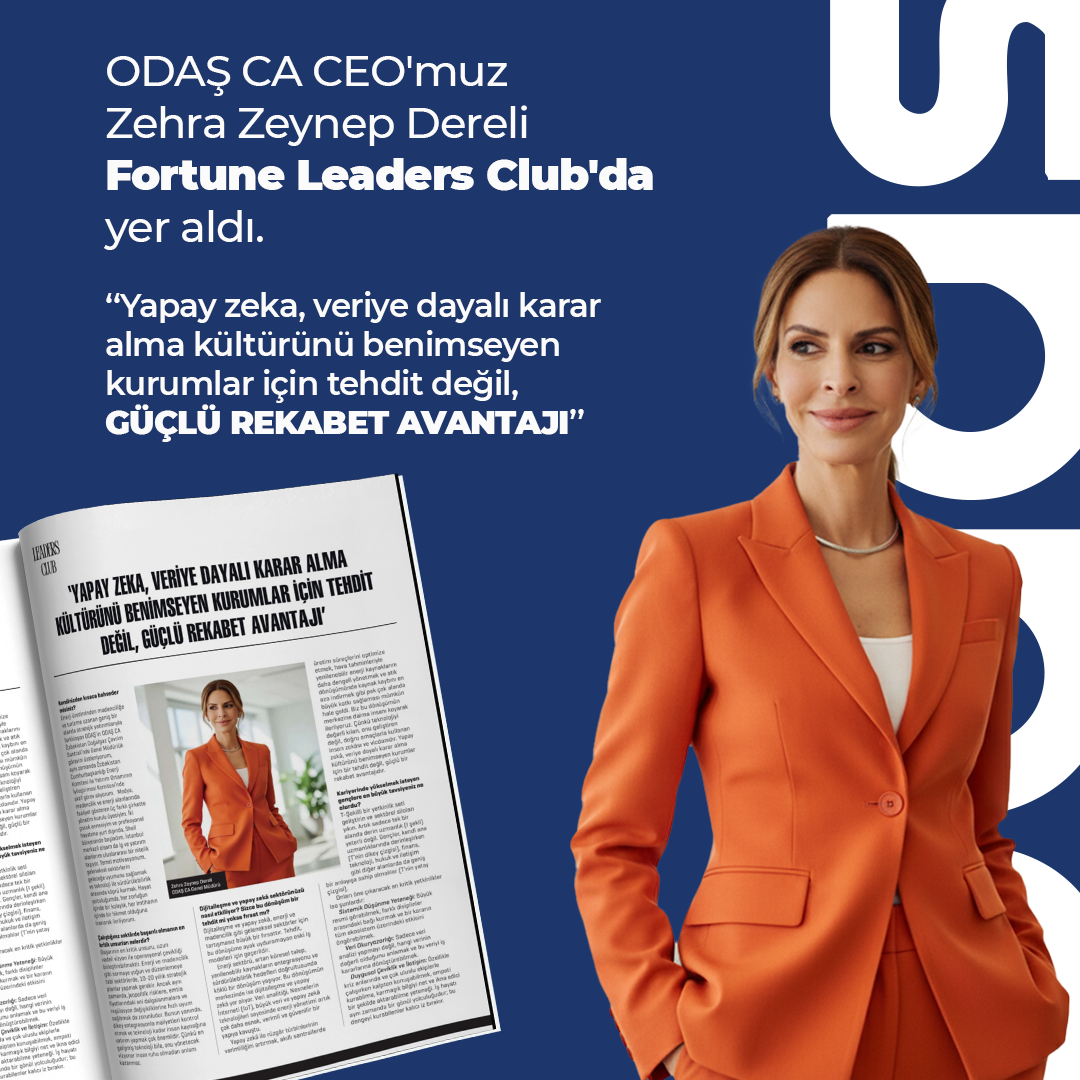
1. Could you briefly introduce yourself?
I serve as the General Manager of ODAŞ CA Uzbekistan Natural Gas Combined Cycle Power Plant, a subsidiary of ODAŞ — a company distinguished by its strategic investments spanning from energy generation to mining and tourism. In addition, I actively participate in the Energy Committee and the Investment Climate Improvement Committee under the Presidency of Uzbekistan. I am a board member of three companies operating in the media, mining, and energy sectors. I am also a mother of two, and my professional journey began abroad with Shell. Although I am based in Istanbul, my work and investment areas have an international focus. My core motivation is to ensure the adaptation of traditional industries to the future by building a bridge between technology and sustainability. In my life’s journey, I move forward with the belief that within every challenge lies ease, and within every test, hidden wisdom.
2. What are the most important factors for success in your industry?
The most critical element of success is the ability to combine long-term vision with operational agility. In capital-intensive and highly regulated sectors such as energy and mining, it is essential to develop 10-to-20-year strategic plans. At the same time, organisations must be able to swiftly adapt to geopolitical risks, sudden fluctuations in commodity prices, and changes in regulations. Equally important is maintaining cost control through vertical integration and investing not only in technology but also in human capital. After all, even the most advanced technology gains meaning only when guided by visionary human insight.
3.How are digitalisation and artificial intelligence affecting your industry? Do you see this transformation as a threat or an opportunity?
Digitalisation and artificial intelligence represent an undeniable opportunity for traditional industries such as energy and mining. The real threat applies only to outdated business models that fail to keep pace with this transformation. The energy sector is undergoing a profound transformation driven by rising global demand, the integration of renewable energy resources, and sustainability goals. At the very core of this transformation lie digitalisation and artificial intelligence. Through data analytics, the Internet of Things (IoT), big data, and AI technologies, energy management has become far more flexible, efficient, and reliable. Artificial intelligence enables significant advancements across a wide range of areas — from increasing the efficiency of wind turbines, optimising production processes in smart power plants, and managing renewable energy resources more effectively through weather forecasting, to minimizing resource loss in waste recovery. At the heart of this transformation, however, we always place people. Because what makes technology truly valuable is not merely those who develop it, but those who use it wisely and ethically. Artificial intelligence is not a threat to institutions that embrace a data-driven decision-making culture — it is a powerful competitive advantage.
4. What is the most important advice you would give to young people looking to advance their careers? Which competencies are most critical for setting them apart?
They should develop a ‘T-shaped’ skill set and break down sectoral silos.. Having deep expertise in a single domain (the “I-shape”) is no longer sufficient. Young professionals should deepen their knowledge in their core specialization — represented by the vertical line of the “T” — while also gaining broad understanding across other areas such as finance, technology, law, and communication — the horizontal line of the “T.” The most critical competencies that will set them apart are:
Systems Thinking: The ability to see the big picture, connect dots across disciplines, and anticipate the broader ecosystem impact of any decision.
Data Literacy: Not only analysing data, but also understanding which data truly matters and translating it into meaningful business insights.
Emotional Agility and Communication: Especially in times of crisis and when working with multicultural teams, the ability to speak with sincerity, empathize, and convey complex information clearly and persuasively. In business, as in life, it is those who harmonize reason and empathy who leave a legacy that endures.